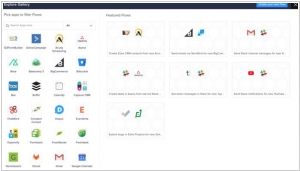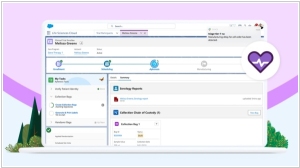Boomi vs Zoho Flow
June 08, 2023 | Author: Michael Stromann
14
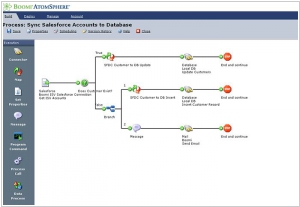
Dell Boomi allows you to connect any combination of Cloud, SaaS, or On-Premise applications with no appliances, no software, and no coding. With Boomi you will achieve unprecedented implementation speeds that are just not possible with software packages, hardware appliances, or custom coding. Using only your web browser, you can sign up, log in and then build and deploy your integrations at whatever pace you require.
Boomi and Zoho Flow are both integration platforms that aim to streamline data and application integration processes, but they have distinct differences in their features and capabilities. Boomi, developed by Dell, is a robust and enterprise-level integration platform that offers a comprehensive set of tools for connecting applications, data sources, and APIs. It provides a visual interface for designing and executing complex integrations and supports a wide range of connectors and protocols. Boomi focuses on scalability, performance, and handling large-scale data integrations, making it suitable for organizations with complex integration needs.
Zoho Flow, on the other hand, is a low-code integration platform developed by Zoho. It offers a simplified and user-friendly interface for creating integrations between various cloud applications and services. Zoho Flow emphasizes ease of use, automation, and business process orchestration. It provides a library of pre-built connectors and templates to accelerate integration development. Zoho Flow is designed for small to medium-sized businesses and users who prefer a straightforward integration experience without extensive coding requirements.
See also: Top 10 Cloud Integration software
Zoho Flow, on the other hand, is a low-code integration platform developed by Zoho. It offers a simplified and user-friendly interface for creating integrations between various cloud applications and services. Zoho Flow emphasizes ease of use, automation, and business process orchestration. It provides a library of pre-built connectors and templates to accelerate integration development. Zoho Flow is designed for small to medium-sized businesses and users who prefer a straightforward integration experience without extensive coding requirements.
See also: Top 10 Cloud Integration software
Boomi vs Zoho Flow in our news:
2018. Zoho launched app integration platform Zoho Flow
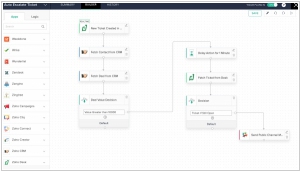
Zoho Flow is an innovative integration platform designed to seamlessly connect all of your cloud applications. With Zoho Flow, you can effortlessly create workflows, known as "Flows," that establish connections between various cloud apps without the need for coding. Whether you're transferring information between apps or executing complex business processes, Zoho Flow empowers you to automate a wide range of tasks. The process of creating a Flow is straightforward: set a trigger, add a sequence of actions, switch it on, and you're good to go! For instance, you can create a Flow that activates when a ticket is submitted to your help desk, automatically updates or adds leads in your CRM system, and sends an update to your team chat application. Zoho Flow simplifies and streamlines your app integration process, enabling enhanced productivity and efficiency.
2010. Dell acquires cloud integration platform Boomi
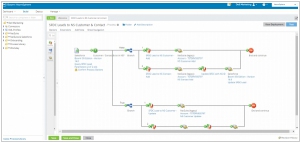
Dell has recently acquired the SaaS integration company Boomi. Boomi offers a robust application integration platform known as Atomsphere, which aims to assist clients in streamlining the process of integrating applications by enabling seamless data transfer between cloud-based and on-premise applications. Boomi boasts the management of "millions of transactions" each month and has successfully completed "tens of thousands of cloud integrations" for numerous customers worldwide. What sets Boomi apart is its solution, which eliminates the need for additional appliances, software, or even coding. Notably, Boomi has raised a modest $4 million in venture capital.

